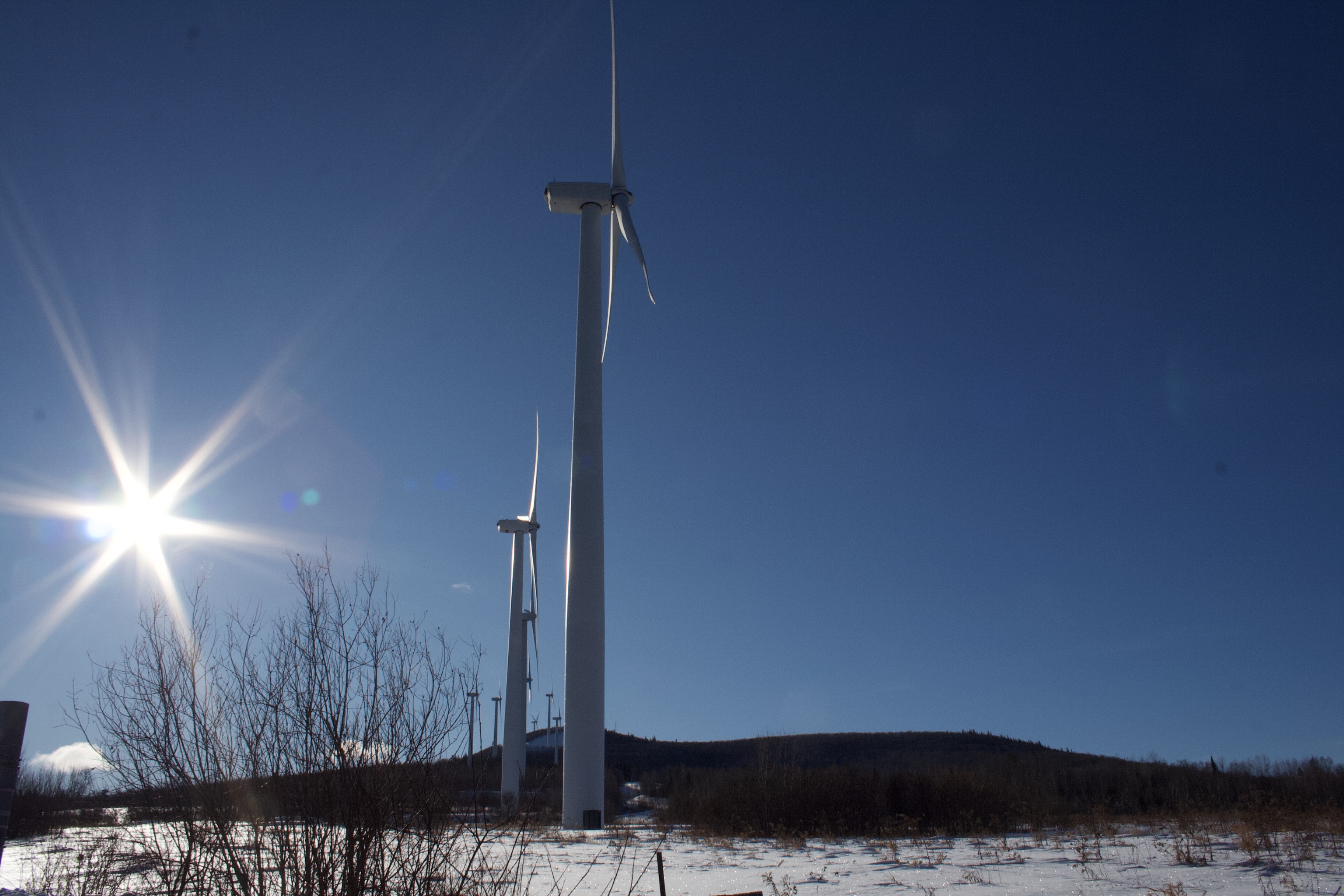If the only things certain in life are death and taxes, you might say corporate lobbyists spend much of their time trying to avoid at least one of the two. Few industries understand this better than oil and gas, which has benefited for at least a century from some tax rules that save them billions of dollars in payments annually.
The world’s nations have agreed to phase out fossil fuel subsidies globally. The Biden administration pledged to axe them domestically. Still, they persist.
Now, with Republicans in Congress and the Trump administration determined to enact $4.5 trillion in tax cuts and desperately looking for revenue and spending cuts to pay for them, some environmental advocacy groups are highlighting the tax benefits that flow to one of the world’s most profitable industries, which the Biden administration estimated at $110 billion over the decade ending in 2034.
The oil and gas industry, meanwhile, is playing both offense and defense, trying to maintain the benefits it has while working to enact at least one new one, which would shield some oil companies from a tax enacted as part of the Inflation Reduction Act of 2022.
We’re hiring!
Please take a look at the new openings in our newsroom.
See jobs
One of the biggest sources of new revenue from the IRA was a corporate alternative minimum tax, which was meant to prevent companies that reported large profits to investors from using loopholes to pay little to no taxes.
The minimum tax applies to all industries. For oil and gas, it has hit some of the large independent drillers in particular (as opposed to the “integrated” majors like ExxonMobil and Chevron). The money involved is significant: According to a new analysis by United to End Polluter Handouts, a coalition of environmental and progressive groups, at least three companies—EOG Resources, APA Corp. and Ovintiv—reported paying nearly $200 million collectively to the Treasury under the minimum tax since it was enacted in 2022.
U.S. Sen. James Lankford (R-Okla.) has introduced a bill that would change the calculus by allowing oil companies to deduct some of their largest expenses against the minimum tax.
Lankford’s bill is included as a priority in the policy blueprint of the American Exploration & Production Council, which represents large independent oil and gas companies.
Lukas Shankar-Ross, an author of the new minimum-tax analysis and deputy director of the climate and energy justice program at Friends of the Earth, pointed out that the Lankford bill would either deepen deficits or force more cuts to programs like Medicaid or other assistance for low-income Americans.
“I think it is as shameful a thing for me to imagine as is possible now,” Shankar-Ross said.
The oil and gas sector is the top industry contributor to Lankford’s campaigns in recent years, giving more than $546,000 since 2019, according to OpenSecrets.
A spokesperson for Lankford said, “Promoting American energy independence is a reversal of the Biden Administration’s policies. Strong domestic energy production makes us less reliant on adversaries, and empowering oil and gas producers makes the United States stronger. Nobody is looking at cutting Medicaid benefits in order to pay for tax cuts, but fraud, waste, and abuse in the program should be examined.”
When it comes to the largest oil and gas companies, however, their focus might be elsewhere. When the American Petroleum Institute issued its five-point policy roadmap for the Trump administration and Congress in November, it highlighted a need to maintain what it called “crucial international tax provisions.”
Just one of those provisions, the so-called dual capacity taxpayer rule, is expected to save oil and gas companies $71.5 billion over a decade, according to Biden administration estimates.
Broadly speaking, federal tax law allows corporations to credit taxes they pay to foreign governments on overseas income against their U.S. tax bills, to avoid being taxed twice. The dual capacity taxpayer rule allows oil companies wide latitude in defining what exactly constitutes a tax payment, with the result being that they can count royalties and other payments as taxes, said Zorka Milin, policy director at the Financial Accountability & Corporate Transparency Coalition, which works to combat harmful impacts of illicit finance.
“They make huge payments to governments around the world, including to some in some pretty shady places, and what is adding insult to injury is a lot of those payments are used to offset payments they pay here in the U.S.”
— Zorka Milin, Financial Accountability & Corporate Transparency Coalition
In fact, in some cases U.S. oil and gas companies might pay more in taxes and other payments to foreign governments than they do to the United States.
Exxon paid billions in overseas royalties alone in 2023, including $1.8 billion to the United Arab Emirates, $1 billion to the Canadian province Alberta and $761 million to Nigeria. Chevron paid about $2 billion in royalties to foreign governments.
Milin said it is unclear how much of these royalty payments Exxon, Chevron and other oil companies might have claimed as credits against their U.S. taxes, but it could run into the billions of dollars annually.
“They make huge payments to governments around the world, including to some in some pretty shady places, and what is adding insult to injury is a lot of those payments are used to offset payments they pay here in the U.S.,” Milin said. “That’s one way in which our tax code is subsidizing these companies to go abroad and drill, baby, drill, but not domestically.”
Exxon, Chevron and the American Petroleum Institute did not respond to requests for comment.
Alex Muresianu, a senior policy analyst at the Tax Foundation, which supports pro-growth tax policies, said many of the oil industry-specific tax rules do not qualify as subsidies. Several of the rules, such as one that allows oil companies to deduct their drilling costs upfront, rather than over a well’s productive life, put the industry on an equal footing with other sectors, he argued. Oil companies often have high costs upfront that generate returns over many years, which can put them at a tax disadvantage with other industries, Muresianu said.
When it comes to royalties, these payments to mineral owners are generally tax deductible. But the dual capacity taxpayer rule offers a far better deal by turning them into a credit, an important distinction. Say Company A earned $100 million in profits, paid $5 million in royalties and paid the full 21 percent corporate income tax. Taking the royalty payments as a credit rather than a deduction would save it nearly $4 million. (Remember, U.S. tax laws are complex, so limitations might apply.)
Milin argued that Congress ought to look at the foreign tax breaks, especially as they are searching for more revenue, because these benefits effectively subsidize oil companies to drill overseas.
“When we have a more explicitly America First international economic policy on trade, on other issues, I think they are likely to look at the ways in which the tax code as it stands is inconsistent with that,” Milin said.
About This Story
Perhaps you noticed: This story, like all the news we publish, is free to read. That’s because Inside Climate News is a 501c3 nonprofit organization. We do not charge a subscription fee, lock our news behind a paywall, or clutter our website with ads. We make our news on climate and the environment freely available to you and anyone who wants it.
That’s not all. We also share our news for free with scores of other media organizations around the country. Many of them can’t afford to do environmental journalism of their own. We’ve built bureaus from coast to coast to report local stories, collaborate with local newsrooms and co-publish articles so that this vital work is shared as widely as possible.
Two of us launched ICN in 2007. Six years later we earned a Pulitzer Prize for National Reporting, and now we run the oldest and largest dedicated climate newsroom in the nation. We tell the story in all its complexity. We hold polluters accountable. We expose environmental injustice. We debunk misinformation. We scrutinize solutions and inspire action.
Donations from readers like you fund every aspect of what we do. If you don’t already, will you support our ongoing work, our reporting on the biggest crisis facing our planet, and help us reach even more readers in more places?
Please take a moment to make a tax-deductible donation. Every one of them makes a difference.
Thank you,
















